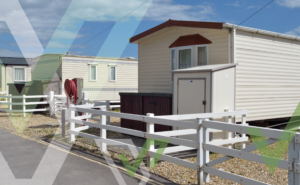[vc_row][vc_column][vc_column_text]
 5 Common Mistakes Short-Sale Buyers Make
5 Common Mistakes Short-Sale Buyers Make
- Skipping the home inspection.
- Ignoring property problems.
- Ignoring legal and insurance information.
- Leaving too little time for closing.
- Falling hard for a bad home.
Know what you’re getting into before you buy a short sale or foreclosure property, and be watchful of these five common mistakes.
1. Skipping the home inspection process
Tag along when your home inspector shows up at the property. You might be surprised what you can learn.
- Ask for repair estimates when an inspector notes a problem, or do some research on your own later. Many homeowners underestimate how much renovations can cost.
- You may want to use specialized inspectors to look for expensive problems such as mold, structural damage, and termites, especially if it’s a common problem in your area.
- Be sure to hire an inspector that’s highly rated. Get recommendations from friends, or weigh online user reviews carefully. Like with all industries, there are excellent, marginal, and bad property inspectors.
- You are granted a certain window of time to inspect the home, known as the inspection period. Reducing an inspection period may give you leverage in a regular real estate situation when you’re placing a bid, but don’t skip or skimp on the inspection period when you’re looking to buy a foreclosed or short-sale home. Utilize this time to make an informed decision.
2. Ignoring property problems
Homeowners who face foreclosure can become angry and take their anger out on the house they’re about to lose.
Vacated houses in foreclosure may sit empty for months or years before they’re bought. As a result, problems occur, such as mold, leaks, termites, thieves, filth, and squatters.
There are a couple of little-known loan programs, the FHA 203(k) and Fannie Mae HomeStyle, which offer solutions for homebuyers who want to renovate.
Learn about the Vendee™ Program and apply today.
3. Ignoring legal and insurance information
A standard disclosure statement will usually reveal whether a house is in a flood plain or had any unpermitted renovation. But REO properties often sell as is, without disclosure, so buyers need to do extra research on the home.
Ensure that all renovations have been permitted and approved. If not, and there is an issue, the city can cite you.
4. Not leaving enough time for closing
Short sale and foreclosure home buyers need to be cognizant that the sale won’t necessarily close as soon as it would for a regular home purchase. The short seller’s lender must approve the foreclosure terms or short-sale price, which will be less than what the seller owes. Banks may also be slow to respond.
It’s not always possible or even advisable to get a home loan from the bank that has a mortgage on the short sale you’re buying. In fact, it’s best if you show the lender a preapproval letter that you received from your own lender inside the last 30 days.
5. Falling hard for a bad home
Never just assume you’re getting a great deal.
Ask yourself these common-sense questions:
- If you were to buy this property, could you afford to rent it out for as much as, or less than, your mortgage payment? Use the VRM Lending payment calculator to estimate your mortgage payment.
- If the home’s value falls 20 percent, will you still feel satisfied with your purchase?
- How much money will you have to spend on the property to make it livable?
As long as you completely understand how foreclosures and short sales work, nothing should stop you from getting a great deal and finding the house of your dreams. Just be sure to fully consider the home inspector’s advice and report before making your final purchasing decision.
[/vc_column_text][/vc_column][/vc_row]







